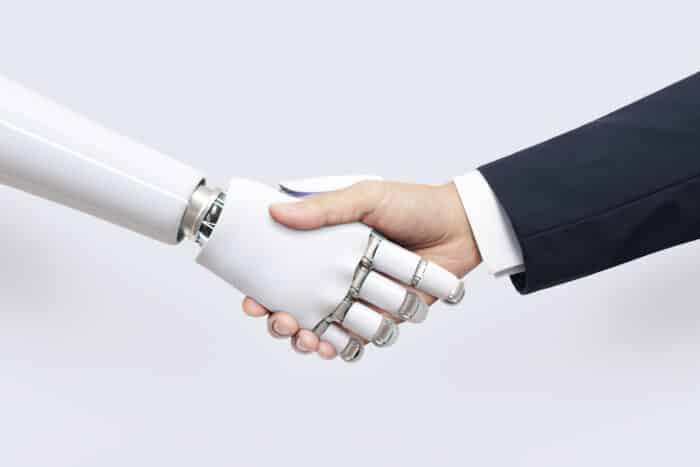What are the most in-demand skills an engineer will need to learn for the future?
The future of technology has arrived and cemented its place in the professional workforce, prominently for engineers. No longer the next-big-thing, automation is now the reality; dominating most industries and transforming the ways we live, work, and study. It is estimated that 85 million jobs globally will be destroyed by 2025 due to mass automation integration.
Jobs disappearing due to technological advancement is not an uncommon occurrence. For example, automated systems saw the phasing out of switchboard operators. However, the ongoing growth of digital technologies and innovations is so robust that the job market is having trouble catching up. This phenomenon widens the skill gap and is jeopardizing a significant number of workers.

The World Economic Forum has stated that to keep up with the meteoric rise of new technologies, half the workforce will need reskilling and upskilling by 2025.
With 94% of businesses expecting their employees to develop new skills on the job themselves, the race for self-development is intense.
While engineering is considered one of the professions least affected by automation, the number of subdisciplines and interdisciplinary subjects is increasing.
Therefore, it is paramount to be on top of new market trends and constantly develop pertinent skills to secure your long-term employability.
This article features a comprehensive list of skills and actions that the modern engineer can take on board to ensure their career is future-proofed.
Core Skills
1. Think analytically and creatively to solve complex problems
An engineering project is a complex combination of numerous problems in various fields. Thus, all engineers, ultimately, are problem solvers. Whether it is a math problem, client management challenges, or procurement and budgeting issues, it is an engineer’s responsibility to respond with the most optimized solutions. Ergo, the ability to analyses and synthesize problem-solving at all times is essential for this profession.
A study on skills and competencies in Industry 4.0 confirms that creativity, innovation, and critical thinking are amongst the most in-demand skills in the engineering profession.

Since each engineering project is different from another (no two bridges are built the same), an engineer must know how to employ their specialized knowledge in new ways. This is a creative process that requires one to approach the problem from different perspectives and come up with an effective and innovative solution.
For example, the outdated human assembly line is both risky and monotonous for the factory employees and costly for the business. This problem was tackled by the creation of the Programmable Logic Controller (PLC). As an industrial computer, PLCs centralize factory controls to create a safer, more productive plant process by reducing redundant human interaction. The innovation has then become an important gateway for future automation technologies.
In short, all engineers must have a creative mindset, besides an analytical one, to tackle unique and complex challenges.
What can I do?
- Ensure that you have pertinent technical knowledge of your field. Your ability to think critically and creatively depends on how much you know.
- Read case studies and roleplay. Put yourself in a job role and analyze the project challenges (technical, financial, schedule, human resources) and solutions. Ask yourself, why those solutions work and did not? What can be done differently? What have you learned for future references?
- Engage in a new project at work and/or create a DIY project. Facing real challenges, yourself is the best way to learn problem-solving. A new project gives you the opportunities to learn skills from others; their unique ways to approach and tackle engineering problems.
- Think critically and creatively in daily life to form a lifelong habit. Whether it is finding the best shopping deals online or buying a new car, critical and creative thinking can do wonders not just for your career but also for your life quality. Don't accept the default or first solution/result right away, instead try to be curious, ask questions, ponder alternatives, and find inspirations from out-of-the-box solutions.
2. Commit to an active and lifelong study strategy, self-management, and self-improvement
Engineers have been always regarded as lifelong students as their career requirements are constantly evolving and transforming.
With new technologies constantly emerging, companies are placing an even higher emphasis on employees' personal development and their ability to acquire new skills on the job.
A study on skills set by engineering bodies as per Washington Accord found that teamwork and lifelong learning skills are the two most sought-after skills following communication.
The reality is modern companies can no longer afford to spend months or more to train or retrain employees. Instead, they need their employees ready to perform in a much shorter time.
The statistics of companies responding to shifting skill needs from four different countries below attest to this norm.

What can I do?
- Upskill or become obsolete: understand that your career development does not stop after you finish your day at work or class. For engineers, it is a constantly evolving process. Conduct an honest self-reflection to determine your strengths and weaknesses (both in knowledge and character) then devise strategies to bolster your strengths and mitigate your weaknesses. A quick personal SWOT is highly recommended here.
- Have motivation and discipline. Self-training can be a tough journey but the rewards are worthwhile. Contentment, procrastination, and burning out are your major enemies. Ensure you have a clear goal (to be employed, to get a promotion, to earn higher pay, to build a brand name for yourself) then form a checklist of achievable tasks. Remember in engineering, standing still equals getting left behind. Focus on the rewards and imagine yourself achieving them whenever you are feeling side-tracked.
- Know to take breaks, too. To combat burning out, give yourself quality off times. Entertainment, hobbies, and social gatherings are beneficial for your mental health, which can recharge your motivation battery and allow you to find new inspirations. Reward yourself with sufficient breaks after you have completed self-assigned tasks.
- Plan an effective study strategy and learn how to read reports, conduct research, and verify information sources. A good action is to create a schedule to balance your work-study-social time.
3. Improve your communication and leadership skills
"Engineers do not build bridges. They do not build cars. They do not build roads. Engineers organize these things to happen, and the actual work is done by other people." - Professor James Trevelyan
More than just an applied scientist, engineers are moving toward the path of project manager and diversity leader. Engineers are now responsible for product and service development, client management, and financial outcomes. To execute quality work in these areas, engineers require not only solid technical and problem-solving skills but also soft skills such as communication, team collaboration, and coordination.
Due to the mass-collaborative nature, taking initiative, and knowing how to manage people and navigate an organization have become essential characteristics of the modern engineer. Globalization has opened the door to multicultural societies, and therefore, multicultural workforces. The present engineering team is more diverse and inclusive than ever before. With ongoing data from 15 countries supports the relationship between management diversity and the likelihood of financial outperformance, this will a staple trend in the future workforce.

To be an effective team member and leader, the modern engineer must demonstrate cross-cultural understanding and empathic communication skills, i.e. knowing how to deal with people from different cultures with different needs and habits.
Complex engineering projects involve dozens, if not hundreds, of diverse members. The multiracial work environment has created demands for appropriate linguistic (verbal and non-verbal) and conflict management skills in supervising and coordinating your subordinates.
Engineering projects depend on daily concise and accurate communication amongst team members, management, other departments, clients, contractors, and the public domain; all within a multinational environment.
With such diverse backgrounds, engineers must know how to translate technical knowledge into pertinent, engaging, easy-to-understand concepts and stories to achieve correct mutual understanding amongst stakeholders.
Ineffective communication leads to confusion and misunderstandings which result in wasted time and resources. For example, trying to explain the Internet of Things (IoT) to a member of the public with no technical background will require a different set of vocabulary and communication methods compare to your tech department.
Challenge yourself: Can you explain the concept of IoT or cloud storage to a non-technical person like your mom or dad?
What can I do?
- Understand that being a modern engineer means being a coordinator. Familiarize yourself with the field of project management. This includes PMBOK, agile development, and scrum framework. Leadership skills are just not about administrating but also how to understand and deal with other people and their views.
- Know to control your emotion especially during stressful situations or conflicts. If you are an aspiring team leader, then you need to demonstrate professional leadership qualities; taking initiative, being level-headed, and showing grace under fire.
- Spend time getting to know your colleagues and educate yourself on their backgrounds with an open mind. Remember that a creative solution requires analyzing the problem from different perspectives (technical, social, and personal). It is normal to have different views from your peers but remember you are here sharing the same goal. Attending networking events is an excellent and easy way to discover and share views and opinions.
- Observe and learn from your current team leader, both positive and negative aspects. There are different styles of leadership. The effective ones are ultimately grounded in empathy, respect, and concise communication.
- Build your skills in written communication and presenting. Learn how to break down difficult engineering concepts into simple terms. For emails, use dot points to make your ideas more concise and easier to read. For reports, know that the most critical part is the executive summary/abstract. Includes concise headings and subheadings in your report so readers can skim through easily to find relevant information. For presentations, learn about your audience and integrate a relevant storytelling aspect (through examples, analogies, references) rather than just pure statistics. An engaging and effective presentation is the key to win new business from a client.
- To ensure effective and smooth communication, allow people to finish their thoughts before replying. No one likes to be talked over and interruption leads to misunderstanding. Learn to listen actively and paraphrase questions to improve your response. A good tip to strengthen the connection with your audience is to speak in their "language" - using their vocabulary, drawing examples and references from within their fields and backgrounds, again, empathy is the main player here.
4. Demonstrate technical expertise and flexibility in your skills
Although this seems like the most obvious, the rapid growth of new technologies and agile development requires modern engineers to be on their feet constantly for upskilling.
What can I do?
- Ensure your engineering foundation knowledge is solid. This includes higher mathematics; basic concepts of physics and chemistry across engineering disciplines; computer and e-literacy skills (Microsoft office suite). These are transdisciplinary skills that are pertinent in any engineering role.
- For skills in your specialized fields, remember that engineering degrees will only give you an introduction to the related technologies. It is your responsibility to then master and apply them. There is a plethora of resources online for self-learning but the best way is mentioned below.
- Create a DIY project. The best way to master technologies is to use them in hands-on and meaningful works. Not only do you learn through real problem-solving, the process then can be used as a case study demonstrating your expertise and boosting your employability. Note that companies are placing more value on employees with excellent autonomy skills.
- Subscribe to related engineer channels to keep yourself up-to-date with the latest technologies and emerging trends. This also serves as a conduit for engaging communication with your peers, echoing the skills mentioned before. The 2nd part of this article will give you a quick introduction to prominent future technologies.
5. Appreciate engineering standards, safety measures, and quality control
Due to their unique nature, engineering projects always carry risks. All engineers, regardless of roles or fields, are legally, ethically, and morally responsible for risk management; this involves determining hazards, analyzing the associated risks, and implementing elimination/ management solutions.
Project risks are varied and can range from technical accidents, financial failures, legal ramifications, nature crises, and human error.
To reduce project risks, official bodies have published a wide range of engineering standards.

These are formal documents that set out mandatory specifications and procedures. The goal is to establish uniform engineering/ technical criteria, methodologies, and practices to ensure the safety and reliability of the project and its outputs. Standard can be international (ISO, IEC, ITU), regional, or national.
Researching standards and upholding them in a specific project is a major part of an engineering career.
What can I do?
- Safety is first: understand that as an engineer, you must ensure the safety of your product, service, and system.
- Train yourself to follow instructions and pay attention to detail. Since engineering projects are extraordinarily complex, a small error at any stage during planning and executing can lead to grave failure.
Technical Skills
Tip: The technical skills required by engineers are vast and varied. While the following list emphasizes the booming technologies of the future, please only use it as a starting point. The technology used in your job might be different as no engineering discipline or company is truly the same. The best way to secure your employability is to research relevant companies, take note of the most prominent technologies, then develop your skills within those fields.
1. Industry 4.0
- Related roles: Industrial automation engineer, Control engineer, Manufacturing engineer
- Related tools: PLC, HMI, SCADA, motors, VFD
The 4th industry revolution brings industrial automation into the spotlight. By 2027, its total market size will reach 370 billion USD. Industrial automation engineers are currently amongst the top in-demand disciplines. These engineers are responsible for the automation process in manufacturing plants; which replaces redundant human interaction and improves safety and productivity.
2. Machine learning, artificial intelligence, and robotics
- Related roles: Robotic engineer (software), Process automation specialist, AI engineer
- Related tools: UiPath, Blue Prism, Automation Anywhere, TensorFlow, Python, C++, Algorithms
TAI engineers construct algorithms to create machines with deep cognitive capabilities. They can perceive, learn, and improve similarly to a human.
These machines are used to perform autonomous tasks with high accuracy to achieve desirable goals.
It is currently taking the top spot in emerging jobs in America and Australia. Neural networks, deep learning, machine learning, and using open-source platform TensorFlow are the essential skills to break into the field of AI.

Process automation specialists and robotic engineers develop and implement Robotic Process Automation (RPA) solutions to automate software-based tasks done by humans within an existing workflow of the business (whereas industrial automation is about physical activities). For example, order fulfilment, bill of materials, transport waybill, inventory management.
The business goals for integrating RPA are to increase productivity and accuracy and reduce operating costs without having to develop complex machines' cognitive capabilities such as AI. The applications of RPA are vast (engineering, marketing, higher education, medical, HR) and it has been widely adopted as the key driver for the "future of work". airpath (currently valued at more than 10 billion USD), Blue Prism, and Automation Anywhere are the three main players in this field.
3. Cloud technology and data analytics
- Related roles: Data engineer, Cloud engineer
- Related tools: Amazon Web Services, Apache Spark, Hadoop, Python, SQL
Data has become the top valuable resource for most businesses globally. Therefore, data engineers are highly sought-after to build secure & efficient databases and manage the workflow of data. Whereas data scientists analyse and synthesise big data to find insights, the data engineer develop data infrastructures and tools that will be used to locate those insights. Some of the key tools for a data engineer are Apache Spark, Hadoop, Python, and Amazon Web Services.
Cloud technology continues to be the main gateway for companies to run their projects without the need for their own server. Cloud engineers develop, implement, and maintain a secure cloud computing system for the business' data storage, web servers, marketing automation, and business analytics. Amazon Web Service, Azure, and Google Big Query are regarded as the crucial skills for this profession.
4. Software application engineering
- Related roles: Full-stack engineer, Back-end and Front-end developer
- Related tools: SQL, Python, C/C++, JavaScript, React.js, Node.js, AngularJS, CAD
As digitalisation is giving more prominence to software and software development, the demand for full-stack engineers is getting higher every year. A full-stack engineer is an all-rounder who is skilled in both database and operating system (the back-end) and programs UI/UX development (the front-end). These are skilled agile project managers that work directly with business clients to ensure the developed software will meet their requirements. This is a demanding job as a full-stack engineer must master many key programming platforms such as SQL, Python, C/C++, JavaScript (React.js, Node.js, AngularJS), and CSS.
5. Cyber security
- Related roles: Network/Cyber Security Engineer, Blockchain developer
- Related skills: Vulnerability assessment, SIEM
With the growth of data technologies, demand for Cyber security engineers has soared the recent years and will continue into the future. These engineers build security programs and procedures to prevent cyber-crimes such as phishing, malware, viruses, and hacking which steal and disrupt business. These programs are applied across the organization's departments.
Conclusion
The Fourth Industrial Revolution brings significant transformations to the way we work and think. As modern engineers, it is crucial to be on top of new technologies and market trends to upskill yourself and stay employable.
READ MORE: How to Stay Ahead of The Automation Trend? – An Industry Research
Engineers that can demonstrate strong capability in critical & creative problem-solving, autonomy & self-development, leadership & cultural empathy, and risk management will flourish in the age of automation and digitalization. Engineers are on the path to become future diversity and sustainability leaders.
The ongoing innovation boom in artificial intelligence, big data, and virtual reality creates exciting and lucrative engineering roles. Modern engineers will need to be aware of and adapt to this ever-changing technology landscape to secure their long-term career success.
Ready to upskill and engineer your successful career? The Engineering Institute of Technology (EIT) is dedicated to ensuring that you receive a world-class education and gain skills that you can immediately implement in the workforce. Browse our engineering courses today.
Researches and reports mentioned:
Akyazi, T., Alvarez, I., Alberdi, E., Oyarbide-Zubillaga, A., Goti, A., & Bayon, F. (2020). Skills Needs of the Civil Engineering Sector in the European Union Countries: Current Situation and Future Trends. Applied Sciences, 10(20), 7226. https://doi.org/10.3390/app10207226
Chaka, C. (2020). Skills, competencies and literacies attributed to 4IR/Industry 4.0: Scoping review. IFLA Journal, 46(4), 369–399. https://doi.org/10.1177/0340035219896376
Kamaruzaman, M. F., Hamid, R., Mutalib, A. A., & Rasul, M. S. (2019). Comparison of Engineering Skills with IR 4.0 Skills. International Journal of Online and Biomedical Engineering (IJOE), 15(10), 15. https://doi.org/10.3991/ijoe.v15i10.10879
McKinsey & Company. (2020). Diversity wins. McKinsey & Company. https://www.mckinsey.com/featured-insights/diversity-and-inclusion/diversity-wins-how-inclusion-matters
World Economic Forum. (2020). The Future of Jobs Report 2020. World Economic Forum. https://www3.weforum.org/docs/WEF_Future_of_Jobs_2020.pdf
















